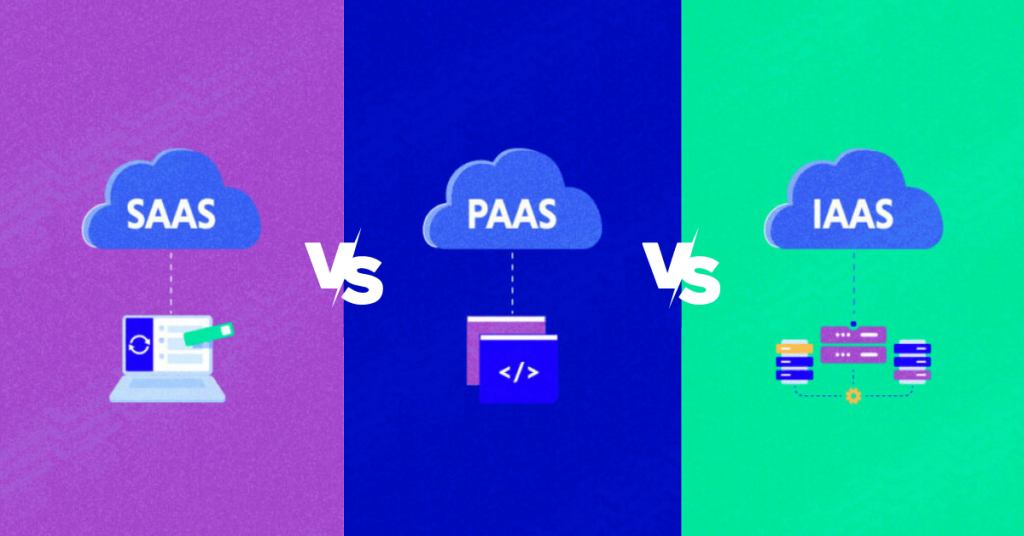Software as a Service (SaaS) companies are booming in the market. These innovative startups offer a range of cloud-based solutions that cater to the evolving needs of businesses. However, building and scaling a successful SaaS startup is no easy task. Numerous challenges arise along the way, hindering SaaS growth and profitability.
In this blog post, we will delve into the top 10 challenges faced by SaaS startups and explore strategies to overcome them. Whether you’re an aspiring entrepreneur or a seasoned professional, understanding these challenges will equip you with valuable insights to navigate the competitive SaaS landscape successfully.
Why Do SaaS Companies Face Challenges?
Before we dive into the specific challenges faced by SaaS startups, it’s essential to understand why these obstacles arise. The unique nature of the SaaS business model presents its own set of complexities. Unlike traditional software, SaaS products are delivered over the Internet, often on a subscription basis. This dynamic creates a range of challenges that SaaS startups must address to thrive.
Currently, the SaaS industry has become highly saturated and competitive as too many SaaS businesses are operating in the same market. The frequent introduction of new SaaS applications, tools, and solutions makes it more difficult for a SaaS company to stand out.
Now that there are more SaaS options, customers have higher standards for their SaaS provider and won’t hesitate to switch if the product’s features, ease of use, or customer service aren’t good enough.
Let’s look at some of the most common challenges faced by the SaaS business, along with the strategies and the right approach that can help you solve them.
10 Key Challenges Faced by SaaS Startups and How to Overcome Them

1. Lack of Knowledge and Experience:
One of the initial hurdles faced by SaaS startups is the lack of industry-specific knowledge and experience. Founders may have a great product idea but struggle to grasp the intricacies of the SaaS market. Understanding the nuances of customer acquisition, subscription pricing, and customer retention requires specialized knowledge.
To overcome this challenge, it’s crucial for SaaS entrepreneurs to invest in continuous learning. Engaging with industry experts, attending conferences, and joining SaaS communities can provide valuable insights. Additionally, building a diverse team with experienced individuals can help fill knowledge gaps and provide guidance.
2. Unawareness of Market Penetration:
Without a clear understanding of market penetration, SaaS startups may struggle to identify their target audience and position their product effectively. Failure to comprehend market dynamics can lead to missed opportunities and ineffective marketing strategies.
To address this challenge, startups should conduct thorough market research. Analyzing competitors, identifying customer pain points, and conducting user surveys can provide crucial insights. By understanding the target market’s needs, SaaS startups can refine their product offering and create effective marketing campaigns.
3. A Faulty Marketing Funnel:
A well-designed marketing funnel is essential for driving customer acquisition and revenue growth. However, many SaaS startups struggle with creating a successful marketing funnel due to limited resources and a lack of understanding of their customers’ journey.
To optimize the marketing funnel, startups should focus on building brand awareness, nurturing leads, and converting them into paying customers. Implementing marketing automation tools, leveraging content marketing strategies, and conducting A/B testing can help refine the marketing funnel and improve conversion rates.
4. High Customer Churn Rates:
Customer churn, the rate at which customers cancel their subscriptions, is a significant challenge for SaaS startups. High churn rates can disrupt revenue streams and hinder long-term growth.
To reduce customer churn, startups must prioritize customer success. Providing exceptional customer support, delivering regular product updates, and actively engaging with customers through feedback channels are effective strategies. Additionally, implementing customer retention programs and offering incentives for loyalty can help increase customer satisfaction and reduce churn.
5. Low Customer Retention:
Customer retention goes hand in hand with customer churn. SaaS startups often struggle to retain customers beyond the initial subscription period. This leads to decreased revenue and increased reliance on acquiring new customers.
To improve customer retention, startups should focus on delivering value throughout the customer journey. Regularly communicating product updates, offering personalized onboarding experiences, and providing proactive customer support are key. By building strong relationships with customers and demonstrating the long-term benefits of their products, startups can increase customer loyalty and retention.
6. Poor Team Management:
Effective team management is crucial for any startup’s success, and SaaS companies are no exception. Managing a team in a fast-paced, dynamic environment can be challenging, leading to communication gaps, misalignment of goals, and decreased productivity.
To foster a positive team culture, startups should prioritize open communication, encourage collaboration, and establish clear roles and responsibilities. Regular team meetings, performance evaluations, and professional development opportunities can also contribute to a motivated and engaged workforce.
7. Changing Technology:
SaaS startups operate in a technology-driven industry that is constantly evolving. Staying ahead of the curve and adapting to emerging technologies can be a significant challenge.
To address this challenge, startups should actively monitor industry trends, invest in research and development, and foster a culture of innovation. Collaborating with technology partners, attending industry conferences, and participating in hackathons can also provide valuable insights and help SaaS startups stay at the forefront of technological advancements.
8. Inadequate Integration:
SaaS products often need to integrate seamlessly with other software systems to provide a holistic solution to customers. Inadequate integration capabilities can limit the value proposition of a SaaS startup’s product and hinder market adoption.
To overcome this challenge, startups should prioritize robust integration capabilities from the early stages of product development. Investing in APIs, partnering with other software providers, and actively seeking customer feedback on integration needs can help ensure a seamless user experience and enhance the product’s market appeal.
9. Lack of Latest Technology:
SaaS startups must leverage the latest technologies to deliver innovative and competitive products. However, limited resources and budget constraints can make it challenging to adopt cutting-edge technologies.
To bridge this gap, startups should focus on strategic partnerships, explore open-source technologies, and leverage cloud computing services. Embracing agile development methodologies and collaborating with technology enthusiasts can also provide cost-effective solutions and ensure access to the latest technologies.
10. Data Security and Compliance:
As SaaS companies handle sensitive customer data, ensuring robust data security and compliance is paramount. Startups must adhere to strict data protection regulations, such as GDPR and CCPA while maintaining customer trust.
To address data security and compliance challenges, startups should prioritize implementing stringent security measures, including data encryption, access controls, and regular security audits. Investing in data privacy training for employees, leveraging secure hosting services, and obtaining relevant certifications can further enhance a startup’s credibility and mitigate potential risks.
Additional SaaS Challenges To Be Consider:
In addition to the overarching challenges faced by SaaS startups, there are specific product-related challenges that require attention. These challenges revolve around product positioning, product experience, and user education.
Product Positioning:
Effective product positioning is crucial for SaaS startups to differentiate themselves in a competitive market. Without a clear positioning strategy, startups may struggle to communicate their unique value proposition and target the right audience.
To tackle this challenge, startups should conduct a thorough analysis of their target market and competitors. Understanding the key pain points of potential customers and identifying the unique features and benefits of the product will help in crafting a compelling positioning statement. Startups should clearly articulate how their product solves specific problems and why it is superior to competing solutions.
Product Experience:
Delivering an exceptional product experience is vital for customer satisfaction and long-term success. However, SaaS startups often face challenges in providing a seamless, user-friendly experience that meets customer expectations.
To enhance the product experience, startups should focus on usability, intuitive design, and regular user testing. Conducting user surveys and gathering feedback from early adopters can help identify pain points and areas for improvement. Investing in user experience (UX) design and conducting usability tests can also lead to a more intuitive and engaging product.
User Education:
Educating users about the value and capabilities of the SaaS product is essential for driving adoption and customer success. However, many startups struggle with effectively educating users, leading to underutilization of the product and decreased customer satisfaction.
To address this challenge, startups should provide comprehensive onboarding processes that guide users through the product’s features and functionality. Implementing interactive tutorials, knowledge bases, and video tutorials can help users understand how to leverage the product’s full potential. Regular communication with users through newsletters, webinars, and blog posts can also contribute to user education and engagement.
Conclusion -SaaS Challenges
Building a successful SaaS startup is a challenging endeavor. However, by understanding and addressing the key challenges outlined in this blog post, entrepreneurs can position themselves for long-term growth and success. From acquiring industry-specific knowledge to improving customer retention, every challenge presents an opportunity for learning and improvement. By embracing these challenges head-on and leveraging the strategies discussed, SaaS startups can overcome obstacles and carve a path toward profitability and market leadership in the dynamic world of software as a service.
FAQs – SaaS Challenges
SaaS challenges encompass various challenges related to product, sales, and business. Check out the top 10 key challenges faced by SaaS businesses. These challenges require strategic planning, innovation, and continuous adaptation to succeed in the SaaS industry.
All the above mentioned challenges are the biggest challenges for SaaS companies. It is necessary to overcome those challenges at the right time to avoid losses.
The challenges faced by SaaS founders include a lack of industry-specific knowledge, limited resources, building a strong team, finding product-market fit, scaling the business, and navigating the complexities of customer acquisition, retention, and pricing. Overcoming these challenges requires continuous learning, strategic decision-making, and effective resource allocation.

